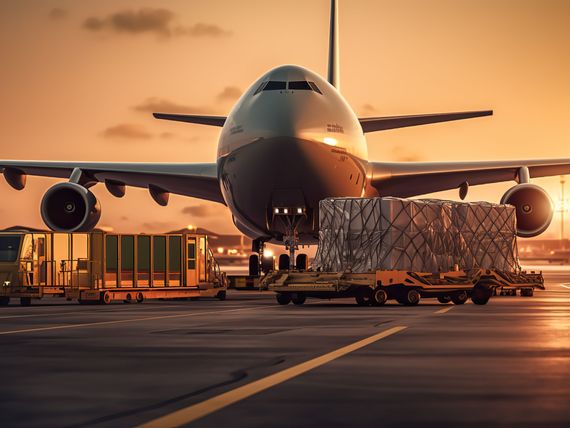Trendwatch: European airlines struggle with plane delays, high costs in Q3; Port labor talks may hinge on presidential election results; Dockworkers expand strike at Montreal port

European airlines struggle with plane delays, high costs in Q3
Europe's major airlines including Lufthansa and Air France-KLM are expected to report another quarter dragged down by rising costs and limited planes, with no sign of delivery delays from planemakers Boeing and Airbus improving any time soon.
While demand has remained stable, costs for maintenance, adverse weather, air traffic control issues and disruption in the Middle East have continued to weigh on carriers.
Port labor talks may hinge on presidential election results
Unionized dockworkers and employers at a swath of U.S. ports set their first bargaining since a recent strike for after a presidential election that could scramble the dynamics in negotiations.
The two sides said they would start talks next month toward a new six-year labor agreement covering U.S. East Coast and Gulf Coast ports.
A shipping industry official said the employers expect to meet union officials in mid-November. “We said it makes no sense to go into conversations without knowing what we’re working with in terms of the U.S. government, which played such an active role to get us to this point,” the official said.
Dockworkers expand strike at Montreal port
Fresh off a one-day strike Sunday, unionized dockworkers at the Port of Montreal voted to hold another strike this week.
The partial, unlimited strike by 1,200 longshore employees against two Tremont terminals is slated to begin at 11 a.m. local time Thursday, according to published reports.
Earlier this month the Tremont facilities were hit by a three-day overtime strike at Canada’s second-busiest port.
Houthis renew campaign against merchant shipping
The Houthis from Yemen carried out their first ship strikes in 18 days on Monday with three explosions reported near the bulk carrier Motaro which was passing through the Bab el-Mandeb Strait. The ship and its crew escaped unscathed.
The attacks were the first since the US sent in bombers to take out Houthi infrastructure earlier this month.
A Houthi spokesman also claimed last night that his group had also targeted two containerships yesterday, although there was no evidence to back these claims up.
Customs clearance the main bottleneck at Mexican ports as traffic builds
Rising traffic has strained capacity at Mexico’s seafreight gateways and stretched waiting times for importers, with customs clearance one of the main bottlenecks.
Mexico’s logistics infrastructure is struggling with the growth in international cargo flows. Industry executives and interest groups have called for broad measures to facilitate traffic, above all for investment in infrastructure, from ports to roads and rail.
Seafarer Stress Reduced and Satisfaction Rises Due to Red Sea Diversions
In a sort of odd quirk of fate, the Seafarer Happiness Index has improved as ships continue to lengthen voyages due to diverting away from Red Sea routes reports The Mission to Seafarers in its latest Seafarer Happiness Index report. They note that the added time has unexpectedly provided seafarers with opportunities for rest, routine establishment, and social activities.
The Seafarers Happiness Index (SHI) is a quarterly survey designed to provide insights into the sentiments and experiences of crews at sea. It strives to identify key issues for ship owners and operators that can improve the happiness and productivity of crews.
Greece heads world’s top 5 largest shipping fleets
The Greek-owned fleet, comprising 4,992 ships with a total carrying capacity of 394,977,181 dwt, maintains the top global position, holding a 16.9% share in terms of dwt.
In second place is the Chinese fleet, with 6,600 ships and a capacity of 309,870,897 dwt, accounting for 13.3% of the global share.
Compared to 2023, the Greek-owned fleet’s share decreased slightly from 17.4%, while China’s share also saw a small decline from 13.4%.
Stretched and insecure supply chains hurt the poorest nations most
The Review of Maritime Transport 2024 released last week said that the small island and least developed states are bearing the brunt of these disruptions as they are the most vulnerable economies to the effects of climate change and political and social upheaval.
UNCTAD’s analysis: “Underscores the need for new infrastructure that is sustainable and resilient, a faster transition to low-carbon shipping and a crackdown on fraudulent ship registrations to safeguard global trade.”


